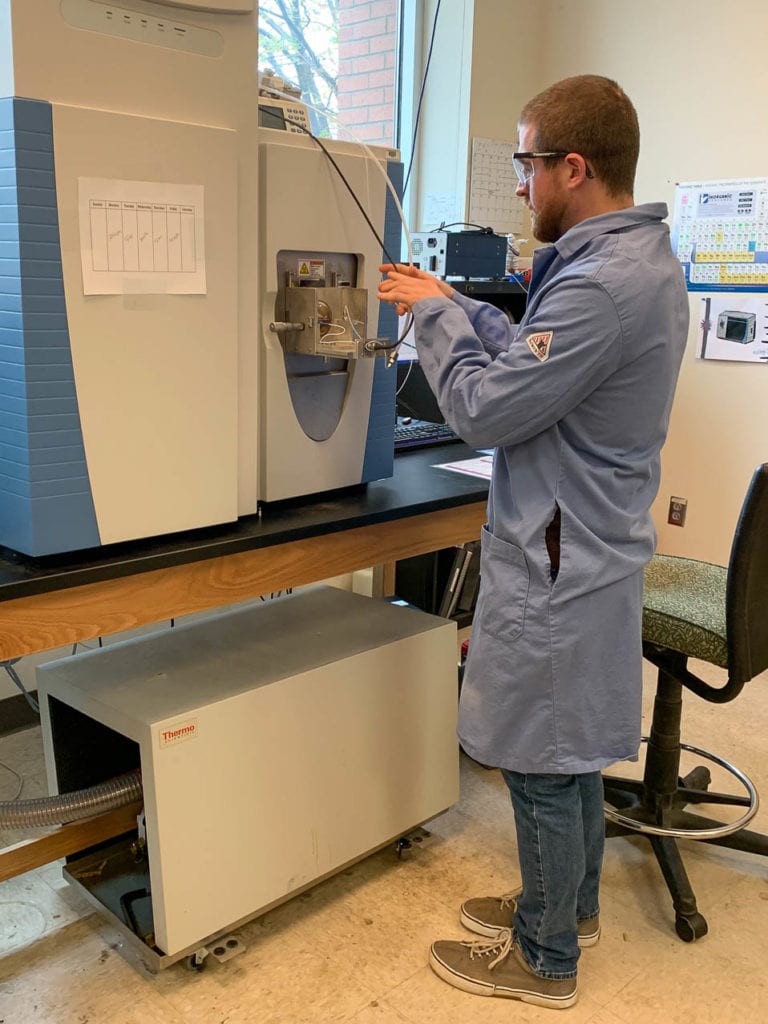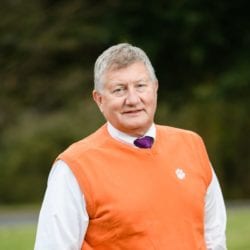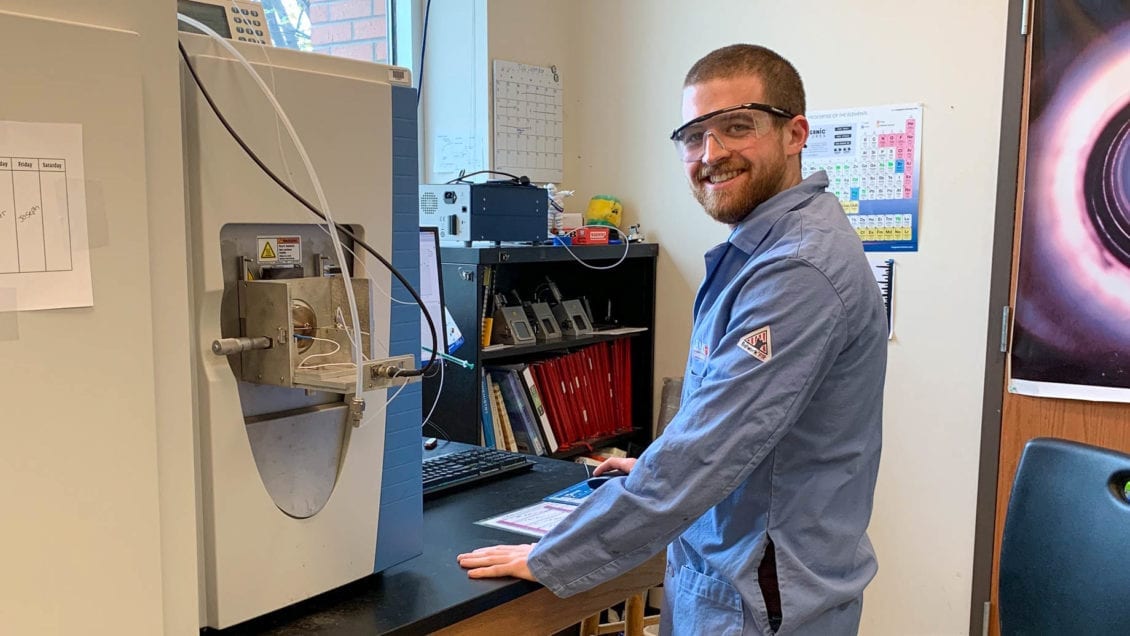When Ph.D. candidate Tyler Williams received a National Nuclear Security Administration Graduate Fellowship, he became the second Clemson University chemist in three years to receive the prestigious fellowship designed to develop the next generation of national security leaders.
Williams also became the latest student in professor Ken Marcus’ pipeline to make the leap from Marcus’ laboratory to federal research laboratories and organizations.
Nearly half of Marcus’ soon-to-be 41 Ph.D. graduates work for the federal government in national laboratories such as Oak Ridge National Laboratory, Savannah River Nuclear Laboratory, Sandia National Laboratories, National Institute of Standards and Technology, Centers for Disease Control and Prevention and the U.S. Food and Drug Administration.
Marcus’ group develops analytical instrumentation, something he says takes a unique mindset and is attractive to federal laboratories and scientific organizations.
“I used to call the group ‘The Tinkerers.’ That is, how do I take pieces that I know something about and put them together to solve somebody’s specific problem,” said Marcus, a professor of analytical chemistry in the College of Science’s Department of Chemistry. “That’s a skill set that national laboratories want. They’re looking for problem-solvers.”

In June, Williams will join the Department of Energy’s National Nuclear Security Administration, which enhances national security through the military application of nuclear science. He will work in the administration’s enriched uranium modernization group, which focuses on modernizing the nation’s enriched uranium capabilities and infrastructure to support NNSA’s defense, nonproliferation, and naval reactor missions.
“Our nuclear materials and weapons were designed so far back and all these other countries like Iran and North Korea are expanding their programs. Making sure our programs remain as a deterrent is the goal,” Williams said.
Most fellows in the program stay on to work in some area of nuclear security, whether in national labs on the research side or in Washington D.C. on the policy side, said Williams, who hails from Hanover, Massachusetts.
Ed Hoegg, a 2019 NNSA fellow, encouraged Williams to apply for the fellowship. Hoegg is now a scientist for the Department of Energy.
The Marcus group’s federal laboratory pipeline began with the professor’s third Ph.D. student, who spent the past two years of his research working at Oak Ridge National Laboratory. Marcus’ next Ph.D. student spent a year at the Savannah River Nuclear Laboratory.
“Through the decades, I’ve had students who have spent time as part of their graduate work doing research in those kinds of laboratories, and many of them were able to spin that off into full-time jobs,” Marcus said. “We’ve developed a track record in that mindset of graduate students and, obviously, a pipeline and the connections that let us place the students there.”

The NNSA recently awarded Oak Ridge National Laboratory a research project that includes a three-year collaboration with Marcus’ lab worth $300,000 for the development analytical methods for the assay of cotton swipes used by the International Atomic Energy Agency in the assessment of potential uranium enrichment activities.
Two of the ORNL collaborators, Paula Cable-Dunlap and Ben Manard, are Marcus research group alumni.
Marcus said that to be a successful tinkerer and problem-solver, there has to be a connection between mind, gut and hands.
“Those three things have to be in sync,” he said. “You’ve got to try things and sometimes fail. There are plenty of people who will think a problem to death and never do anything. But you have to know enough and understand what’s going on in order to react on a gut level. Then your hands do the work. Sometimes things work out as you planned, sometimes they don’t and sometimes serendipity is your best friend. If you do something in the lab and something remarkable happens, but if you don’t have it in your gut and in your head to recognize it, then it’s lost.”
Some of Marcus’ Ph.D. students work in industry, including the biopharmaceutical field.
“All of my Ph.D.s are very well trained. I’m no prouder of the national lab people than I am of the industry people. They all have an impact. They all have learned the same basic skill sets in terms of how to go about solving problems,” Marcus said. “But we have this unique niche. I think Tyler getting this recognition is another demonstration of what our program does.”
Get in touch and we will connect you with the author or another expert.
Or email us at news@clemson.edu

